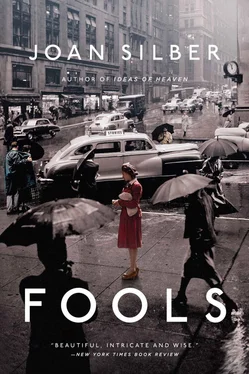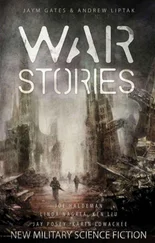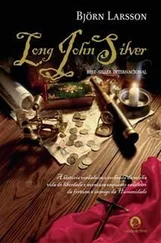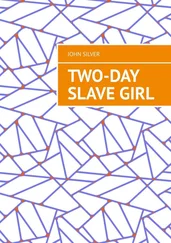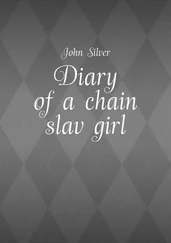We couldn’t bring crayons or pencils or toys into this room, so when my mother wanted adult talk, she had me take my sister into a corner and tell stories to entertain her. “You can do it, Louise,” she said. We sat on the pitted linoleum and I made up a story about a blue elf that made no sense. Barbara pretended to like it.
“Behave yourselves, kitten-heads,” my father said when we left.
On the bus going home, my mother opened a bag with special treats — celery stuffed with cream cheese, ham sandwiches with relish, homemade brownies and date-nut squares, and a thermos of lemonade. We were very excited, the whole trip seemed to have been so we could have this food.
We learned to expect treats on every trip, donated by friends or baked by our hardworking mother at night. My dad was allowed an hour of us a month, which could be broken up into two half-hour visits. The visits had creepy aspects — our mother had to go behind a curtain to be searched; one of the prisoners had a face like a panther; the guards blocked us and made us go home the time we were four minutes late. All the same, we mostly looked forward to going. Our father was quieter there than at home — no rowdy games, no tickling — but he could tease us about our big feet or tell us we were more beautiful than Lana Turner; his voice was still his voice.
The kids in school were the problem. My father didn’t care if the enemy bombed and burned and shot everyone in his own country. He didn’t care who died among all the brothers and fathers who were fighting for all of us. I heard this all day every day from kids I didn’t know and kids I did. “He’s my father ,” I said. Maxie Pfeiffer dared another girl to punch me in the stomach. I had been taught not to hit, and my hands trying to shield myself just made everybody laugh. A teacher broke us up and sent the girl into detention (Maxie went free), but I was never safe at school. Barbara didn’t have it easy either. Once they threw a bag of dog shit at her back.
My friend Ruthie’s family wouldn’t let me come to their apartment anymore. Ruthie said, “Does your father want Hitler to kill us? We’re Jewish, you know.”
“ I know,” I said. “I’ve only known you since you were five.”
Her parents wouldn’t let her in my house either, but we were old enough to go to the park in Washington Square ourselves, where we continued a game about cowgirls and runaway horses that we’d played for years. There was a grassy spot across from the fountain that we especially liked, and we met in all weather, out on the range in earmuffs.
None of this got easier as time went on. My father was sentenced to a year, and when he came home, my sister kept sitting on his lap every time he sat down, and I was always tap-dancing for him. I pursued him nonstop with the shuffle-off-to-Buffalo. There was a big party to celebrate his return, with music on the Victrola and my mother giggling. She kept working at the job she had now, sketching ads for a department store in Brooklyn, and our dad was mostly home, where he read a lot. I didn’t understand what happened next. The law still wanted him to register for the draft — hadn’t he already told them? He had to tell them again. He was home for six months and then he was back in prison.
My sister Barbara was a mess, so I had to be not a mess. I ignored her stupid whining and I acted very upright and prissy, which was a good idea — after a while she tried to imitate me and stopped being such a pill. My mother started to visit the prison more often without us. And in my dad’s second year there, he was part of a work strike because he didn’t like it that colored men had to sit separate in the dining room (my father told the guards he wouldn’t work), and this went on for months, and none of us could get in to see him.
I was a teenager and the war was over by the time they let my father out. He had been a talkative man before he’d gone in; he came out shadowy and subdued, a phantom father. But then, week by week, he grew more distinct and animated, he spoke to us more often and more loudly. Sometimes he was newly bossy, checking to see if we’d made our beds, making us wait to eat till our mother sat down. We were a little afraid of him now.
In the meantime, I was starting to think about boys. In high school people still knew my father had helped the enemy, but some boys decided it wasn’t my fault. I liked almost any boy who liked me; I couldn’t get over the thrill of their interest, though I had been raised to be a serious person.
Various boys joked around with me after school or leaned over me on the subway ride home, but nothing came of it until there was an argument among the staff of the school newspaper, about whether we needed another article about prom etiquette, and this boy and I were on the same side (against it). He was a broody guy, with a nicely developed sense of irony, which allured me greatly. Walking on the street after the newspaper meeting (our side had lost), we did our own spoof of a student boob presenting a corsage and stabbing the girl with its pin. I clutched my chest and leaned against a stoplight, to act out my wound. He pretended to half carry me across the street, and all that horsing around was extremely interesting.
What was his name? Ted Pfeiffer. He was Maxie Pfeiffer’s older brother! This twist of fate was not as jarring as the other known fact that came with it: the father in that family had been killed in the last year of the war. “I know your sister,” I said.
“She’s a complete pain,” he said.
It wasn’t until our third time at the movies, when he made a move to start necking and I absolutely didn’t stop him and we emerged from the theater with pink, blurred faces, a tickled-to-death couple, that he told me on the way home that he really hadn’t wanted to start dating me because of my father.
“But you’re not him,” he said. “Are you?”
I didn’t even pause. I didn’t resist or explain or defend my family. “No, I’m not,” I said. “Definitely not.”
I would’ve said anything to keep him with me, to make sure he didn’t change his mind, and perhaps I was lucky he didn’t ask anything worse, but that was the beginning for me, and I knew it, of a different life. When I got back inside the apartment, I looked at my mother, who had fallen asleep on the sofa waiting for me, and I thought, This apartment is really shabby . And in the room I shared with my sister, I hissed at Barbara when she woke up, “Stop looking at me. I despise your looking at me.”
For a long time, I’d held what I thought of as two opinions. With my parents, I was entirely against the war and all wars. What could be gained by millions of people marching out with the sole purpose of killing as many of each other as they could? I couldn’t believe this butchery was allowed . Had always been allowed. The ugliest of all insanities. I was proud of my father for not going along with any of it. On the other hand, we all saw the photos of the concentration camps in Europe, after our soldiers went in, the living skeletons lying among piles of corpses, and what if our side hadn’t won? Could people who did such things ever be stopped by peaceable means? I didn’t mind having two viewpoints — it made talking to my friends easier (especially Ruthie), and it showed that I was advanced enough as a thinker to hold more than one idea in my mind at a time. Wasn’t that a sign of a higher intelligence?
“It’s okay to have two opinions,” my mother said, “if all you have to do is have an opinion. If.”
I thought my mother, typically, was making everything harder than it had to be. Meanwhile, Ted and I were getting along extremely well. We cracked each other up at the newspaper meetings, we talked about what a bunch of yahoos most of the school was. We argued about whether Tolstoy was better than Dostoyevsky (I said, “Tolstoy is fuller ”) and we agreed about William Dean Howells being really boring. And he walked me between classes at school, a sign of major attention. This is what real life is , I thought, at his side in the hallways, and I have it already . Even Maxie started being nicer to me.
Читать дальше
